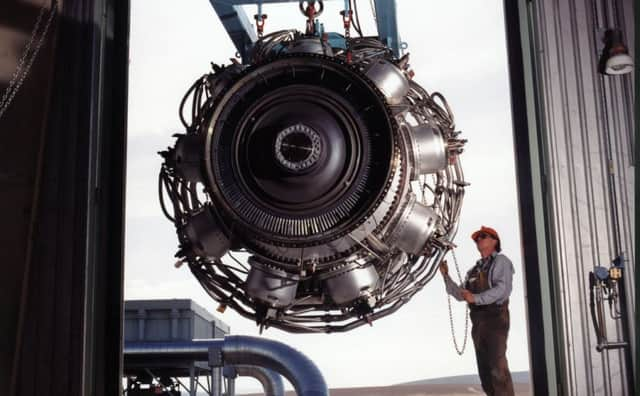Engineering skills gap could cost economy £27bn


According to Engineering UK, 1.82 million engineering jobs roles will need to be filled nationwide between 2012 and 2022.
If this is met, an additional £27bn will be brought into the economy.
Advertisement
Hide AdAdvertisement
Hide AdHowever, there is currently an annual shortfall of 55,000 skilled workers within the industry.
Yorkshire and the Humber accounts for more than seven per cent of demand for engineering jobs, meaning 13,000 need to enter the sector in the region each year to keep pace with demand.
This would bring an additional £533m into the economy in the region.
Paul Jackson, chief executive at Engineering UK, said the industry, which is worth £400bn nationally, is “a vital part of the UK economy” both in terms of cash generated and employment.
Advertisement
Hide AdAdvertisement
Hide AdHe said: “For every new engineering role an additional two jobs are created in the economy.
“The engineering community is increasingly involved in a collective drive to inspire the next generation, who will ensure the continued growth and success of the industry in the UK. This collaborative work must continue if we are to come even close to realising engineering’s potential.”
Engineering currently accounts for 24.9 per cent of UK turnover, Engineering UK said - nine per cent higher than at the start of the recession.
Mr Jackson told The Yorkshire Post an increasing dependence on technology is making engineering skills more important than ever.
Advertisement
Hide AdAdvertisement
Hide AdHe said: “We all want to keep the lights on, to have green energy, to insulate our houses. We tend to take it for granted when clean water comes out of the tap, but there’s a tremendous amount of engineering behind that.
“Then there’s smartphones, tablets, computers - and with an ageing population, this dependence will only get greater.”
The UK “stopped training people at the rate we needed 30 years ago”, which has contributed to the skills crisis, as highly-trained people approach retirement.
Competing on the international stage also requires improving skill sets across manufacturing in general, he added.
Advertisement
Hide AdAdvertisement
Hide AdEngineering UK is calling for improved careers advice and greater connection between science, technology, engineering and maths (STEM) subjects at schools, as well as a doubling of the numbers of people completing both apprenticeships and degrees in engineering.
“Graduates entering engineering jobs can earn between 15 and 30 per cent more than peers with the same level of qualifications in a different area. “It’s a great opportunity and we need to make the most of that,” Mr Jackson added.
Business secretary Vince Cable said a strong engineering sector is important for the economy.
“In Government, we’re working hard to make sure we have the skills we need in 2022 and beyond, but we need to work with industry to make sure we inspire the engineers of tomorrow,” he said.
Advertisement
Hide AdAdvertisement
Hide AdLast month, the Department for Business, Innovation and Skills announced plans for new national colleges for advanced manufacturing, digital skills and wind energy.
The facilities, in addition to those already announced focusing on high speed rail, nuclear, and onshore oil and gas, will enable young people to study up to post-graduate level and aims to boost the number of highly-trained specialists.
Stephen Tetlow, chief executive of the Institution of Mechanical Engineers, said the report demonstrated the “cliff edge” the industry is currently facing.
“It shows that unless we double the number of places for graduates and apprentices in our universities, colleges and training centres, not only will our vital industries and infrastructure fail, we will surrender any chance of future growth. We are about to surrender GDP. It’s as simple as that.”
Advertisement
Hide AdAdvertisement
Hide AdThere must be “a wholesale change” in the way schools and society value science and technology, including employers doing more to show teachers, students and parents what prospects lie ahead for engineering graduates.
He added: “We must grasp the opportunity before it is too late. If we get it right, we can not only save our economy from failure, but we can boost the UK’s economy by an additional £27bn per year.”
--
Increasing the number of women in engineering is vital to addressing the skills shortage.
Business secretary Vince Cable said there is “no way” the UK can meet the talent shortfall in engineering and science without tackling gender diversity within the sectors.
Advertisement
Hide AdAdvertisement
Hide AdEngineering UK chief executive Paul Jackson said initiatives that show the range of opportunities available in the industry have “a tremendous impact” on young women.
The WISE (Women in Science and Engineering) Campaign aims to promote STEM subjects and careers to girls, teachers and parents. On January 21, it will host a free workshop for teachers in Leeds as part of its Creating a Future in Engineering project. For more information, visit http://www.wisecampaign.org.uk/